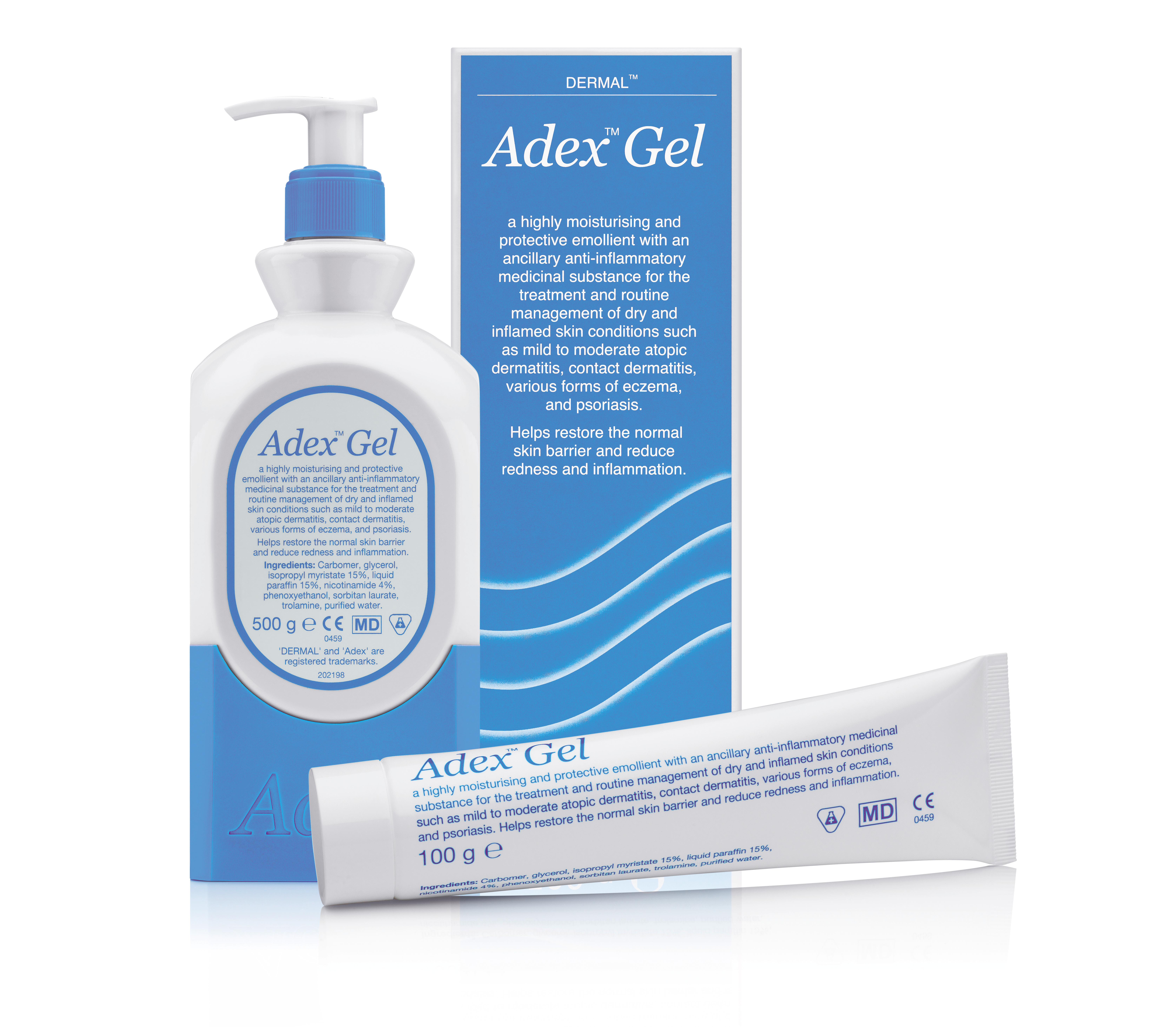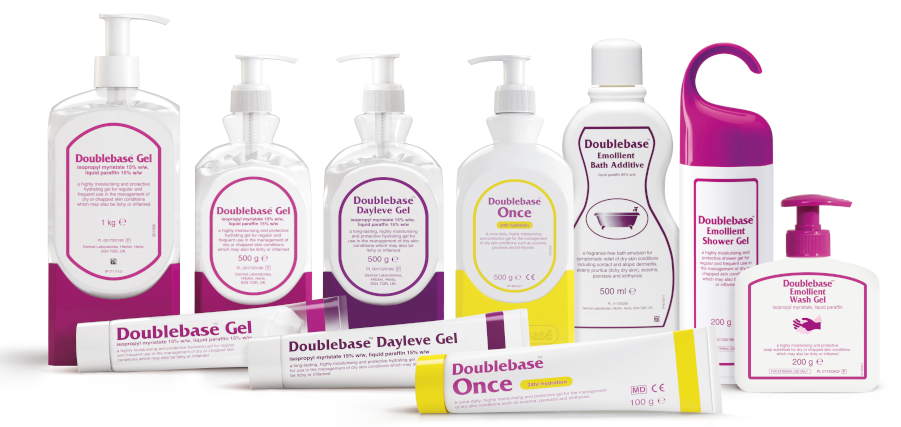Dry skin conditions including eczema and psoriasis
About dry skin conditions including eczema and psoriasis
Dry skin is characterised by flaking, scaling, itching and cracking. Dry skin occurs when the skin has a deficiency in the natural oils that help to maintain moisture within the skin, or when the skin is exposed to environmental factors such as cold weather, central heating, air conditioning and use of soaps, which are all drying to the skin. Older people are prone to developing dry skin as the skin becomes thinner and less efficient at producing natural oils (sebum). Dry skin conditions can affect people of any ethnic origin and any age group from the very young to the elderly.
People with dry skin conditions, such as eczema or dermatitis, psoriasis and ichthyosis, have an impaired skin barrier.
Eczema causes the skin to become dry, itchy, sore, cracked and red. It is a highly individual condition which varies from person to person and has many different forms. It can be widespread or confined to areas such as the inside of elbows and backs of knees, on the face, or on hands or feet.
Psoriasis is a dry and inflamed skin condition where a build-up of skin cells causes red, flaky patches of skin covered with silvery scales. Psoriasis is not usually as itchy as eczema but can become uncomfortable and can easily crack and bleed. Psoriasis patches often appear on elbows, knees, scalp and lower back, but can appear anywhere on the body.
Emollients (also known as moisturisers) are a core treatment for dry skin conditions. They help to rehydrate the skin and prevent further water loss from the epidermis. The consistency of an emollient varies with the amount of oil it contains and the formulation. Emollients are available in many different forms such as gels, lotions, creams, ointments, soap substitutes and bath additives. Emollients should be used routinely and frequently, and when required.
Some emollients may have ancillary ingredients for specific purposes e.g. the Dermol range of products all have antimicrobial action which may be beneficial for those prone to infection or those who have itchy eczema. Adex Gel is a different emollient which has an added ancillary anti-inflammatory action which may be beneficial for those with dry skin conditions that are prone to inflammation such as eczema and psoriasis.
Topical steroids are sometimes recommended in addition to control eczema and dermatitis flare-ups. Topical steroids reduce itching, redness and inflammation. They are available in different strengths, with hydrocortisone being the mildest. Steroids should only be used on the affected areas and for a limited amount of time.
Related Products
-

Adex® Gel
Adex Gel is a highly moisturising and protective emollient which also contains an added, ancillary anti-inflammatory medicinal substance to help reduce inflammation and redness.
-

Dermalo™ Bath Emollient
An emollient bath additive to relieve dry skin conditions, such as contact dermatitis, atopic eczema and elderly pruritus.
-

Dermol® range
Dermol antimicrobial emollients are recommended for the management of dry and pruritic skin conditions, especially eczema and dermatitis.
-

Doublebase™ range
Highly moisturising and protective emollients for regular treatment of dry or chapped skin conditions, which may also be itchy or inflamed. The Doublebase range supports 'Complete Emollient Therapy'.
-

Emulsiderm™ Emollient
Antimicrobial bath additive for dry and pruritic skin conditions.
Patient Advice
-
Eczema management: a guide for patients
(PDF 1,082 kb)
-
Management of dry skin conditions: a guide for patients
(PDF 834 kb)
-
Management of dry, inflamed skin conditions: a guide for patients
(PDF 1,044 kb)
-
Skin care in the genital area
(PDF 1,108 kb)
-
Quick Start Guide on How to use applied emollients
Short, snappy and fun animation showing patients how to use emollients to get the best therapeutic results.
-
Quick Start Guide on How to use bath emollients
Short, snappy and fun animation showing patients how to use bath emollients to get the best therapeutic results.
-
Quick Start Guide on How to use soap substitutes
Short, snappy and fun animation showing patients how to use soap substitutes to get the best therapeutic results.
-
EmolliZoo App information leaflet
(PDF 4,573 kb)

Dermal Products
Explore product information for patients
